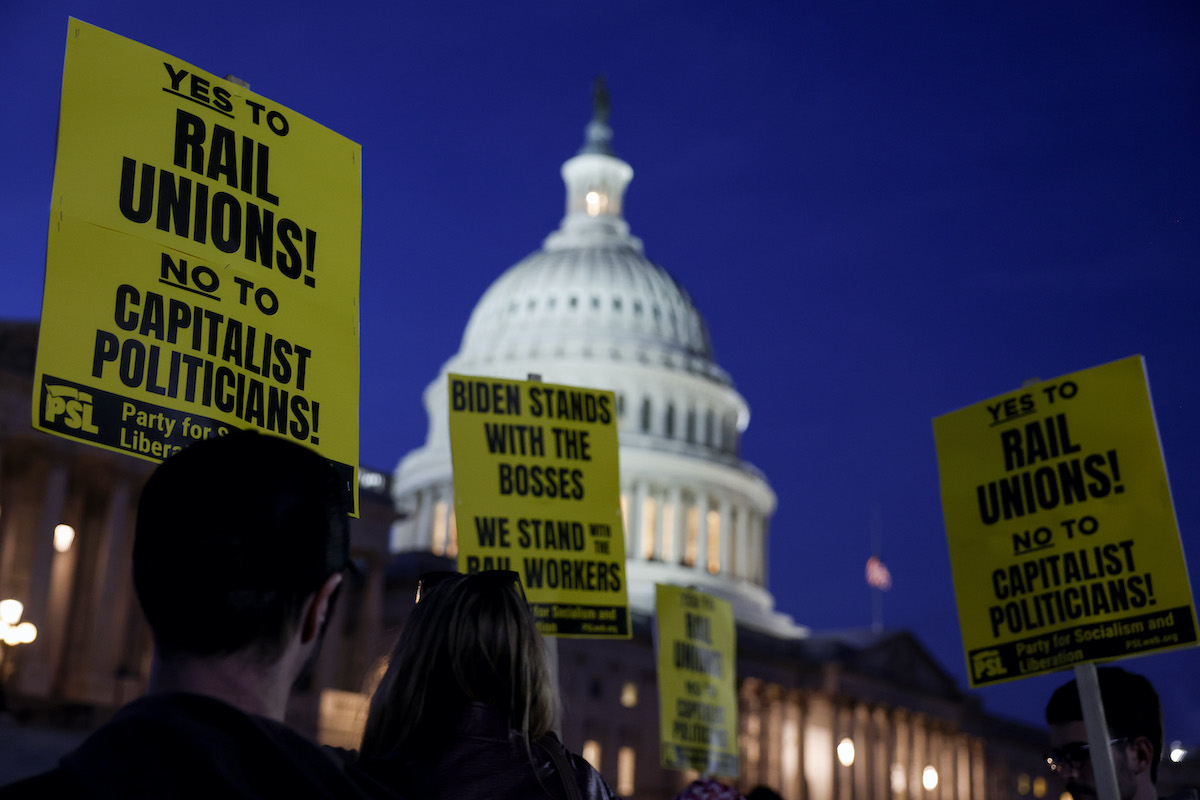Ohio Train Derailment Shows the Danger of Prioritizing Profit Over Safety

The Ohio Train Derailment that has flooded the town of East Palestine with vinyl chloride has reopened so many discussions about the dangers of prioritizing profit over safety.
After a 150-car train carrying hazardous chemicals was derailed on the evening of Friday, February 3rd, the situation has only worsened from there. The chemicals being carried on the train, including a highly toxic compound known as vinyl chloride, were released and set on fire.
All of this is horrible and it also feels horribly familiar.
The fight for workers’ rights
For some people feeling a bit of déjà vu, I would like to direct your memory to two months ago. In December, unionized railroad workers were planning to strike due to a harsh work schedule that prioritized profits over workers’ rights to time off. The strike was deemed illegal by congress and thus the union was forced into a deal that its members did not support.
Candace Wagner, the 2022 Socialist Workers Party candidate for governor of Pennsylvania, former freight rail conductor, and member of the Brotherhood of Locomotive Engineers and Trainmen, had this to say:
“The most recent derailment in Ohio is a reflection of the dangerous working conditions facing rail workers and all those living in the communities alongside the tracks… The rail bosses, backed by the federal government, refused to address any safety or other substantive issues raised by rail workers through our unions in the recent national rail negotiations…. In their lust for profits, the railroad bosses are running increasingly long, heavy trains and pushing on rail workers smaller crews, arbitrary schedules, longer shifts and more work than ever before. Massive cuts have been made in the operating crafts, car inspectors, mechanical and maintenance of way workforces. All this leads to derailments like this, which show that to protect rail workers and all those living near the tracks, our unions need to fight for workers control of production…”
In that statement, issued to The Militant, Wagner also broke down a number of changes that should be made to the industry, such as “a limit of 50 cars per train; a minimum crew of four with two on the head end and two in a caboose or engine on the rear.”
All of which harken back to the demands workers made back in December, wanting safer working conditions. It turns out ignoring problems doesn’t make them go away. It just makes the problem bigger until it blows up. Literally.
What is vinyl chloride?
This derailment shows how workers’ rights affect all of us. As a result of the accident, thousands have had to be evacuated from the area; while the order has been lifted, many chemists, ecologists, and health professionals warn that the danger has not passed. The soil, air, and waterways are now polluted and will likely remain as such for a long time. We honestly have no idea how bad this will be, but the massive number of dead animals already being found doesn’t bode well for the future of this town or its ecosystem.
Perhaps the worst part is that the transportation was all done legally.
Despite vinyl chloride being a highly flammable and carcinogenic chemical, the government did not classify it as a ‘high-hazard flammable train’ as they would have done if the train were carrying oil. The railroad industry has a reputation for cutting corners on safety in the name of profit, including relatively recently blocking a new braking system designed to reduce the damage from derailments, despite the industry having endorsed these brakes previously.
All of this highlights the dangers of deregulation and siding with companies against workers. Workers are the ones on the ground, who know what works and what doesn’t. They saw the writing on the wall, they know the dangers of this industry, and how to mitigate them. When they aren’t listened to, when they’re told their voices or their work doesn’t matter, it presents a danger not just to them, but to all the communities they interact with or provide for, and all of us by extension.
We’re in this together. It’s best that we act like it.
(featured image: Anna Moneymaker/Getty Images)
Have a tip we should know? tips@themarysue.com